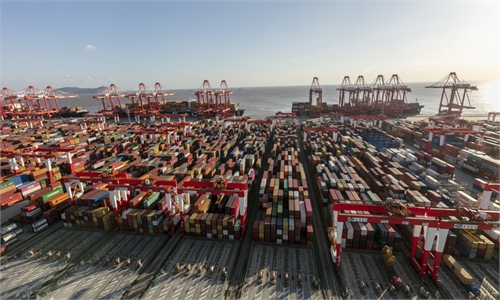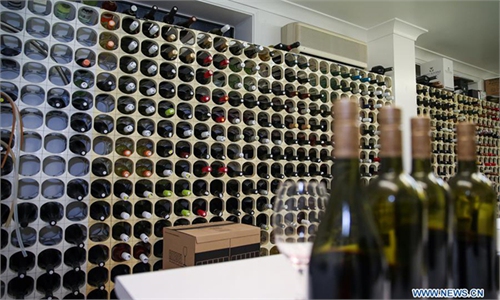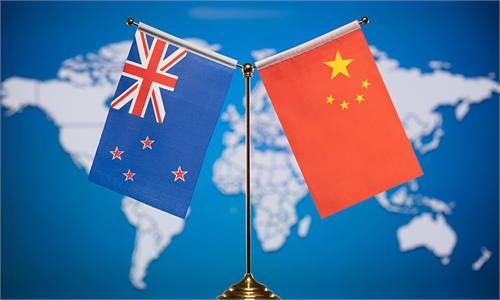Gordon Chang’s idea to address empty shelves would see a 'collapse' in the US, not in China

trade
The US' so-called China hand Gordon Chang, who has been advocating the "collapse of China" for over 20 years, has continued bad-mouthing China. When talking about the empty shelves in stores of the US, he once again attributed it to China."Americans, for the first time in their lives, are seeing empty shelves in stores. This isn't right. We need to cut China out of our supply chains by producing locally," Chang tweeted on Tuesday.
If the US follows what he said, Chang would surely see a "collapse" in the near future, but it would take place in the US, instead of in China. If doing it would help the US and hurt China, former US president Donald Trump would have done so. Even Trump would not resort to such ill-advised practices. One can imagine how crazy this idea is, which is without any logic or common sense.
Chang is hyping the anxiety toward China to cater to some so-called US elites to earn a living. This is all his remaining value and role in the US. When he predicted "the collapse of China" in 2001 in his sensational book The Coming Collapse of China, he drew worldwide attention. Yet for two decades, this prediction has constantly turned out to be wrong. Rather than "collapsing," China is booming at a rapid pace. Long gone are Chang's "golden days," and even many Americans sniff at his predictions of the "collapse of China." Now, he is on stage for a "clown performance."
His bad-mouthing of China, or his demand to "cut China out of our supply chains," is not out of the national interests of the US, but out of his own ill intention to get public attention, and to serve his own interests.
He notices the "empty shelves" and is clearly aware of the US dependence on China on supply chains. But his solutions and interpretations are illogic and far-fetched.
"There is no inevitable causal relationship between 'empty shelves' and the US' dependence on China in terms of supply chains. 'Empty shelves' is the result of the US' problems with the purchase, supply channels and distribution. But Chang cannot interpret the 'empty shelves' according to this logic. Instead, he tends to direct at China any problems the US is confronted with." Shen Yi, a professor at the School of International Relations and Public Affairs of Fudan University, told the Global Times.
Shen continued, "Chang is just like the Roman senator Cato the Elder, who ended every one of his speeches with the catchphrase that, 'Carthage must be destroyed!' regardless of whether he had been speaking about the city of Carthage. Chang has become obsessed and paranoid."
It is not surprising to see some Americans still agreeing with Chang about cutting China out of the US supply chains when we reviewed the responses to this tweet. Chang is extremely self-centered, as he believes he is correct about everything. If it turns out that he is wrong, it must be someone else's fault. Shen said that "these characteristics are the inevitable outcome of the radicalization of the individual-centered liberalism in the US. Against this backdrop, his rhetoric will resonate with some Americans."
But he will have egg on his face once again, just as he did when his "collapse of China" prediction turned out to be totally wrong. It will be proven that under the current international environment, China-US economic ties will only grow increasingly close. This can explain why US Trade Representative Katherine Tai used the term "recoupling" instead of "decoupling" when delivering remarks on China-US bilateral trade relations on October 4.



